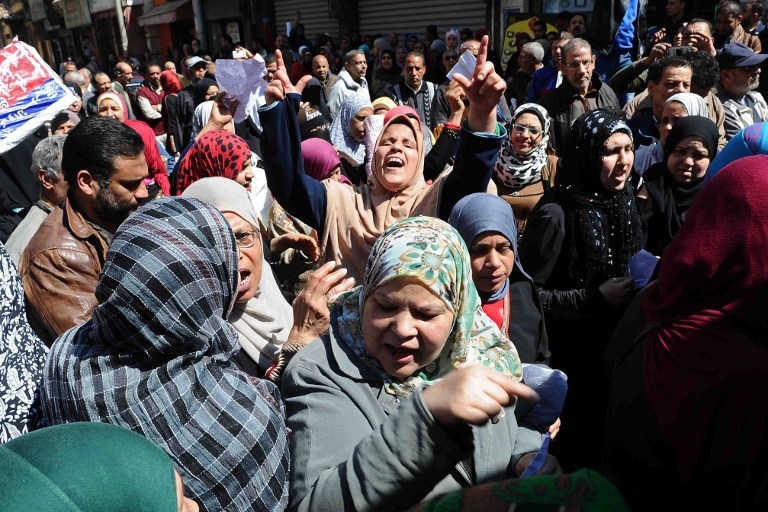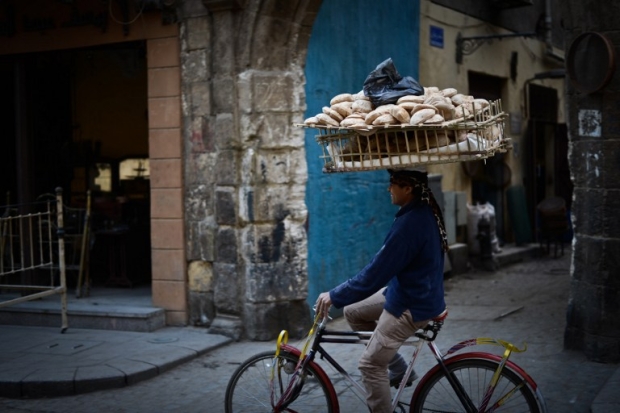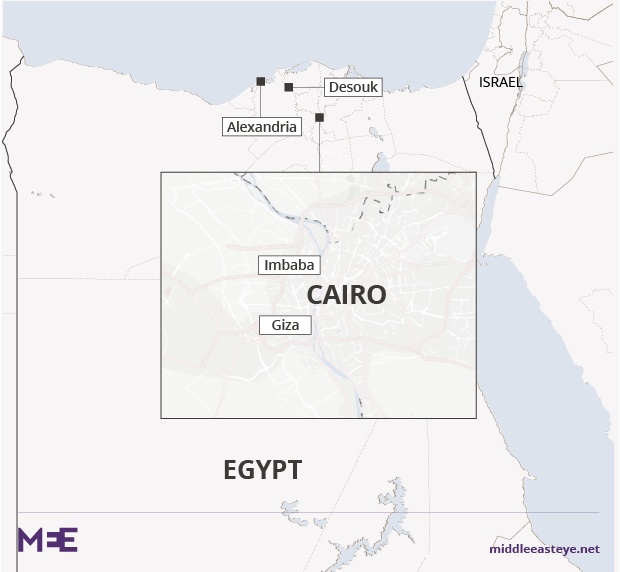Egypt bread riots: Government says 'fight against corruption' behind cuts

The Egyptian government defended a move to reduce bread subsidies but promised to swiftly resolve a crisis in rising prices on Tuesday in attempt to calm angry Egyptians following an outbreak of protests across the country.
“I apologise to every Egyptian citizen who didn’t manage to get their bread today,” the Egyptian al-Shorouk newspaper reported Egyptian Supplies Minister Ali Moselhy as saying on Tuesday.
“The bread crisis will be resolved across all governorates within 48 hours,” he added.
Demonstrations broke out on Monday and Tuesday after the government announced a reduction in the quota of subsidised bread for those without subsidy smart cards.
Fearing this was a prelude to bigger cutbacks, thousands of Egyptians took to the streets in central Alexandria, Minya, Desouk, and the Imbaba suburb of Cairo when they could not get their daily ration of bread.
Moselhy claimed that he sought to curb waste and corruption by reducing the quota of subsidised bread for those without subsidy smart cards and bakery owners taking advantage of government subsidises.
“Take a look at bakery owners, how it was like for them five years ago and how it is now,” said Moselhy implying that bakery owners’ had become a lot wealthier over the past five years.
“It is all because some [bakery owners] have been taking advantage of these golden cards and making huge profits off of them,” he added.
Egypt operates a system in which each family receives a card to buy five subsidised loaves per person per day. The government then pays bakeries a subsidy per loaf.
Bakers also receive "gold cards" to sell bread to individuals without a smartcard – generally those waiting for cards.
“Confrontation and suffering were necessary, partial solutions must come to an end,” he said.
Egypt's subsidy system
The demonstrations are the latest in a string of protests this week against bread shortages as a result of the ministry of supply’s decision to require golden card bakeries to record and report the amount of subsidised bread given to beneficiaries with faulty or lost smart cards.
The Egyptian government developed its food subsidy system in 2015 to limit fraud, replacing the old system of giving subsidised flour to bakeries to one in which subsidies are based on the amount of bread sold, which is recorded on smart cards.
However, last week it reduced the amount bakers can sell via the "gold card" scheme with bakeries reporting the amount of subsidised bread had dropped from between 1,000 and 4,000 loaves previously to 500 loaves a day.
A Reuters report last year revealed flaws in the system allow bakers to overstate sales to profit from the black market, where they sell subsidised flour to private bakeries, costing the government billions of pounds.
'A message of popular anger'
Commenting on the developments, experts called on the government to resolve the situation swiftly.
Egyptian economist and chairman of the Arab Private Equity Association (APEA) Hany Tawfiq said in a Facebook message: “These demonstrations reflect a brewing frustration among the poorest within the Egyptian society.
“This is a message is one of popular anger,” he added saying that the year 2017 would be the most testing for the Egyptian government as it tackles both economic and political challenges.
Meanwhile, Abdel Aal Darwish, the head of the bakeries division at the Alexandria Chambers of Commerce, called on the government to reverse the move and issue all Egyptians with smart cards, reported Mada Masr.
President Abdel Fattah El-Sisi called on Wednesday for expanding Egypt's social welfare programmes to ensure that the poorer sectors within society receive their basic needs, Alahram newspaper reported.
Sisi and the government are already under pressure to soften the impact of IMF reforms since November, which have sent the cost of living soaring.
Egypt has a history of deadly bread riots, with dozens killed in 1977 in an eruption of discontent with the reduction of food subsidies. The subsidies were later reinstated to restore quiet.
New MEE newsletter: Jerusalem Dispatch
Sign up to get the latest insights and analysis on Israel-Palestine, alongside Turkey Unpacked and other MEE newsletters
Middle East Eye delivers independent and unrivalled coverage and analysis of the Middle East, North Africa and beyond. To learn more about republishing this content and the associated fees, please fill out this form. More about MEE can be found here.






